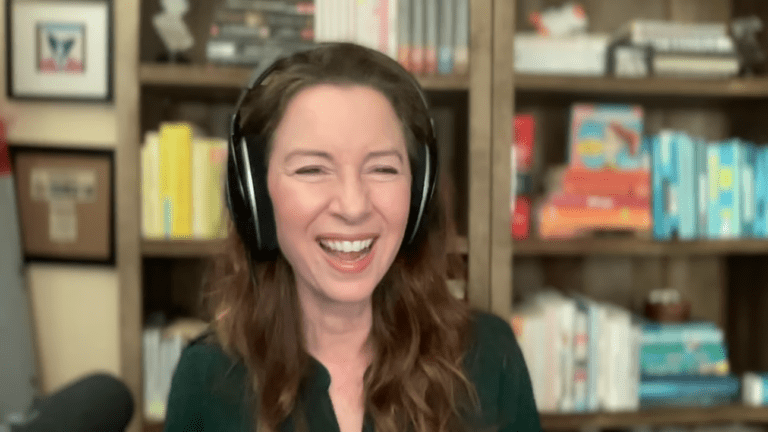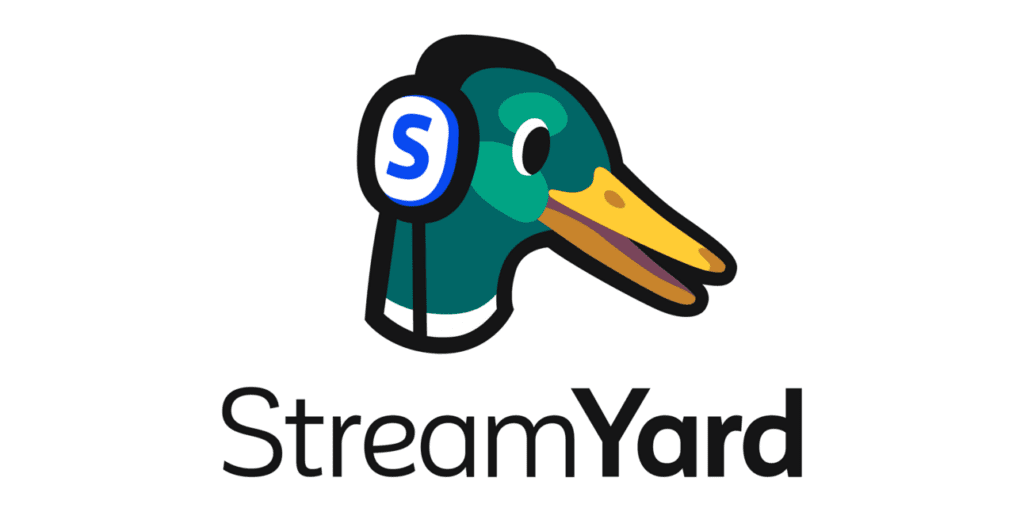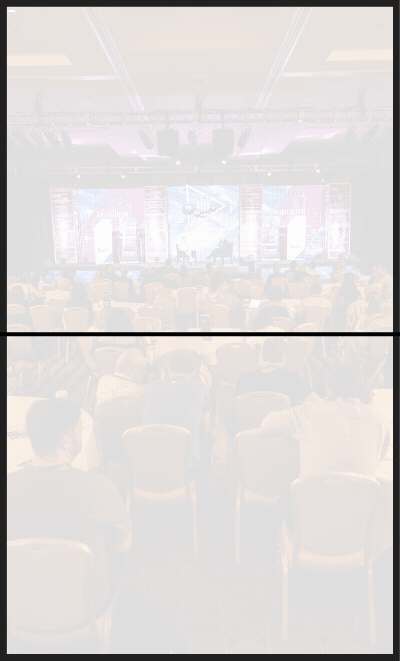
Presented by StreamYard
Language is how human beings understand themselves in the world. Writing is how we understand uniquely. Not to write is to live according to the language of others.
Nerdwriter
How To Build A Podcaster's Creative Emergency Kit
Flexing your creative muscle is taxing, and sometimes you need a boost. In moments of creative struggle, a creative emergency kit offers the tools to get back into creating good work.
The kit is divided into three levels of creative emergency: Quick Hit, Inspiration, and Burnout (outlined below). Hop into a spreadsheet, create three tabs (one for each level) and start populating the cells with what works best for you.
Note: It’s important to create your kit while you’re in a productive state of mind, not while you’re in the middle of a creative emergency.
Level 1: Quick Hit. You were in the zone, but now you’re orbiting it. You need a little somethin’ to pull you back in. Quick Hit examples from my emergency kit:
- Turn on your creative faucet by letting every idea flow with no filter. Once all the bad and cringy ideas are flushed from your system, you’ll find the better ideas will flow more freely. (Julian Shapiro wrote a great article on this process.)
- Change the visuals. If you’re typing, change your font. Or ditch Microsoft Word and instead type your ideas in an email and send it to yourself. Or print your text and edit it by hand. If you’re editing audio, switch from your desktop to your laptop. These subtle shifts offer new perspectives that bring renewed energy.
- Change your physical environment. New place, new ideas.
- Revisit favorite quotes. The right words at the right moment? *chef’s kiss*
Level 2: Inspiration. This is when a Quick Hit just won’t do. You need something with more oomph. Inspiration examples from my emergency kit:
Listen to your favorite (relevant) podcast. My go-to is The Memory Palace. After an episode, I’m rejuvenated and reminded why I fell in love with writing and podcasting.
Seek wonder. Visit a museum, take a stroll on your favorite hiking trail, listen to music—do something that connects deeply to your mind and heart and carry that back to your work.
Drop into MasterClass. I’m a huge fan of MasterClass, and can’t tell you how many times I watched a lesson on dog training or gardening and found myself excited to get back to work. Curiosity is transferable, and sometimes a little distraction goes a long way.
Try creative switching. Keep your creative engine running by temporarily dipping out of the podcasting realm and trying something else creative. Write a short poem. Take photos of your dog. Build a microphone out of LEGO.
Level 3: Burnout. In the foggy misery of burnout, what you need to get back on track alludes you. Ideas cease. Potential solutions flicker dimly in the distance. The best antidotes I’ve found for burnout involve getting the hell away from the workstation.
Burnout examples from my emergency kit:
Go for a walk around the block. Creativity lives on its feet.
Take a power nap. 15-20 minutes of shuteye has risen me from the burnout ashes time and time again.
Take a shower. Fresh body, fresh mind.
Do some chores. Move on to a menial task and let your subconscious tackle the problem.
Now…go build! Each creative emergency stage offers its own symptoms, as well as opportunities for a cure. What are yours? Let me know!
Hey, podcasters and content creators! Level up with StreamYard, your go-to for live streaming and podcasting. Simple, powerful, stable and easy to use. Best part? No hidden fees, no trials – just pure creative bliss. Ready to captivate your audience? Dive in, sign up free today!
Signal Flow: Mignon Fogarty (aka Grammar Girl)
Industry game changers and valiant minds from other creative professions share their wisdom, adversities, and paths to innovation.

Mignon Fogarty is the creator of Grammar Girl and is an inductee into the Podcasting Hall of Fame. She has appeared as a guest expert on the Oprah Winfrey Show and the Today Show and is the author of ten books, including the New York Times bestseller Grammar Girl's Quick and Dirty Tips for Better Writing. She recently released an updated version of The Grammar Daily.
I can’t believe I’m saying this, but the Grammar Girl podcast has been around for 17 years.
If it weren't for the audience engagement, I'm sure I would have stopped doing this a long time ago. It really makes it fun. And that’s what I love about podcasting. I had been writing for magazines, and you never hear from your readers. You put it out in the world and then it's done. Whereas when you put a podcast out in the world, often that's just the beginning of a conversation.
Before I was Grammar Girl, I worked at a number of internet startups during the dot com days. I just started Grammar Girl as a hobby, as this fun thing. Within six weeks, it was number one or number two on iTunes. It completely took off. And having been at startups, I knew that when you see that kind of growth, you have a business.
I believed at the time the show’s format was what made it so popular. It was scripted and short and got to the point really quickly. And I thought, you can do that with any topic. So I launched the Quick and Dirty Tips network.
When I started the network, the thought was that I would have a number of shows on different topics, and then the hosts would work together to promote each other and grow and support each other as a unit, which I think really is what we've done.
I'm incredibly grateful for my audio producer, Nathan Simms. In the beginning, I did all the audio production on my show, and I'm glad not to have to do that anymore.
When I think about what I really enjoy doing and what uses my skills, writing the show is one of those things. But ironically, hiring guest writers has been one of the easiest things to do. And one of the things that has allowed me to be more productive because I can put out more shows and do more work.
I have Google alerts set up using words like “language” and “grammar” and things like that. And I do get ideas from those and I subscribe to a bunch of blogs in a feed reader. It's just getting as many inputs as you can in your topic area and being open to ideas.
I’ve tried different project management tools, but I always come back to my spreadsheet.
The entire industry says you have to be on YouTube. And we’ve given it more than a fair chance, we’ve put enormous amounts of time into producing all different kinds of YouTube videos. I don't think that YouTube drives that many people to podcasts. I feel like a bit of a contrarian, but I don't believe that all the work we've put into YouTube, at least for our highly-produced videos, has been worth it.
We are going to keep putting up our interviews on YouTube. It’s easy to put those up, you already have the video from just recording the interview. It takes far less time than producing videos the way we have been. And that's definitely worth it. But I still don't think it’s getting a whole bunch of new podcast listeners.
It’s funny because I’ve tried a lot of microphones, but the Focusrite Scarlett Solo made a bigger improvement in my audio than any change in microphone ever did.
Recently, I started doing polls on the Grammar Girl Facebook page. I've always been interested in the American Heritage Dictionary Usage Panel, which was a body that answered poll questions about usage and was disbanded many years ago. And I really miss it. And so I thought, well, maybe I can replicate that concept. I get hundreds of the most interesting comments on the polls. And I'm reading through them and interacting with them. And it's just invigorating. I’ve already done at least one episode based on something that surprised me that I learned in the comments from my social media followers.
As I do more and more of these polls, I've been thinking, well, this could actually be a book. And so you can see how it goes from social media engagement to episodes for the show to a book idea. And it all just really works together.
Further Exploration
This week’s recommendations are podcasts Mignon can’t get enough of:
The Dial-Up — A short sci-fi audio drama about friendships across time. (Discovered through Evo Terra's “The End” newsletter that highlights completed, or nearly completed, audio fiction.)
Think Fast, Talk Smart — A podcast about writing and speaking by Matt Abrahams, who teaches strategic communication at the Stanford Graduate School of Business. I started listening to Matt's show after I interviewed him for the Grammar Girl podcast about his new book, “Think Faster, Talk Smarter.” I learned so much, I wanted more.
That's Just Weird — A show about weird news and one of the newest offerings from Aaron Mahnke's network. I find it to be the light diversion I need after I've read too much hard news.
What's your favorite time to record a podcast episode?
Until next time, have a bold week.
– Doug
For advertising information, contact Kristy at kristy@podcastmovement.com





Join the Movement